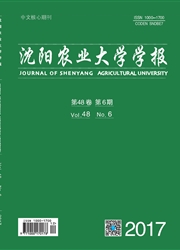

 中文摘要:
中文摘要:
油品资源短缺及其衍生的环境污染问题使得可再生清洁的生物柴油备受关注.生物柴油的生产技术途径多种、原料品种多样、生产过程副产物的利用方式多变,导致对其生产过程的客观全面评价较困难,至今仍缺乏这方面的系统性研究.试验以层次分析法为基础,建立了综合评价模型,分析不同生产工艺的技术适用性、经济可行性及其对环境的影响.结果表明:环境影响与原料供给在评价体系中所占权重最大,固体酸催化酯交换法综合得分最高,为70.41.研究结果为生物柴油产业的工艺优化与技术升级提供了指导方向.
 英文摘要:
英文摘要:
Considerable attention has been given to biodiesel towards diminishing fossil fuel reserves and associated environmental problems from burning.Biodiesel is the most attractive alternative fuel because of its good combustion properties and renewable features.There are a number of choices with regard to biodiesel production technology,raw materials and byproduct utilization patterns,making difficult to evaluate its production process comprehensively.A comprehensive evaluation model,based on AHP,taking technology applicability,economic feasibility and environmental impact into consideration,was established.The weights of environmental pollution and feedstock supply were the greatest,and heterogeneous acid-catalyzed transesterification seemed most promising.
 同期刊论文项目
同期刊论文项目
 同项目期刊论文
同项目期刊论文
 Effect of H2/CO ratio on microstructure and catalytic performance of precipitated iron-based catalys
Effect of H2/CO ratio on microstructure and catalytic performance of precipitated iron-based catalys Auto-thermal reforming of biomass raw fuel gas to syngas in a novel reformer: promotion of hot-elect
Auto-thermal reforming of biomass raw fuel gas to syngas in a novel reformer: promotion of hot-elect Effect of iron promoter on structure and performance of CuMnZnO catalyst for higher alcohols synthes
Effect of iron promoter on structure and performance of CuMnZnO catalyst for higher alcohols synthes Transformation of carbonaceous species and its influence on catalytic performance for iron-based Fis
Transformation of carbonaceous species and its influence on catalytic performance for iron-based Fis Preliminary investigation on hydrogen-rich gas production by co-steam-reforming of biomass and crude
Preliminary investigation on hydrogen-rich gas production by co-steam-reforming of biomass and crude Different Methods for Evaluating Pinewood Sawdust Pyrolysis Kinetics by Thermogravimetry Mass Spectr
Different Methods for Evaluating Pinewood Sawdust Pyrolysis Kinetics by Thermogravimetry Mass Spectr Synthesis of Fe3O4-nanocatalysts with different morphologies and its promotion on shifting C5 + hydr
Synthesis of Fe3O4-nanocatalysts with different morphologies and its promotion on shifting C5 + hydr Influence of manganese promoter on co-precipitated Fe-Cu based catalysts for higher alcohols synthes
Influence of manganese promoter on co-precipitated Fe-Cu based catalysts for higher alcohols synthes Ultrasonic-assisted production of biodiesel from transesterification of palm oil over ostrich eggshe
Ultrasonic-assisted production of biodiesel from transesterification of palm oil over ostrich eggshe Preparation and characterization of carbonaceous adsorbents from sewage sludge using a pilot-scale m
Preparation and characterization of carbonaceous adsorbents from sewage sludge using a pilot-scale m Study of thermal decomposition and kinetics of biomass/Swill-cooked dirty oil blends during co-pyrol
Study of thermal decomposition and kinetics of biomass/Swill-cooked dirty oil blends during co-pyrol Production of light olefins from biosyngas by two-stage catalytic conversion process via dimethyl et
Production of light olefins from biosyngas by two-stage catalytic conversion process via dimethyl et Decentralized Heating in a Rural Village using Biomass Gasification and Anaerobic Digestion: Economi
Decentralized Heating in a Rural Village using Biomass Gasification and Anaerobic Digestion: Economi Analysis of product distribution and characteristics in hydrothermal liquefaction of barley straw in
Analysis of product distribution and characteristics in hydrothermal liquefaction of barley straw in Molecular Dynamics Simulations of Interaction between the Mixture of Glycerol and 1,6-hexanediol and
Molecular Dynamics Simulations of Interaction between the Mixture of Glycerol and 1,6-hexanediol and Hydrogen from biomass degradation production by aqueous-phase reforming : An overview on the catalys
Hydrogen from biomass degradation production by aqueous-phase reforming : An overview on the catalys Influence of alkali catalyst on product yield and properties via hydrothermal liquefaction of barley
Influence of alkali catalyst on product yield and properties via hydrothermal liquefaction of barley Chuangzhi Wu,Influence of manganese promoter on co-precipitated Fe-Cu based catalysts for higher alc
Chuangzhi Wu,Influence of manganese promoter on co-precipitated Fe-Cu based catalysts for higher alc 期刊信息
期刊信息
